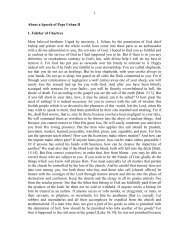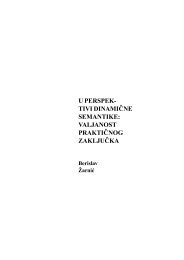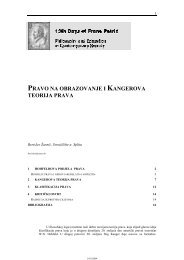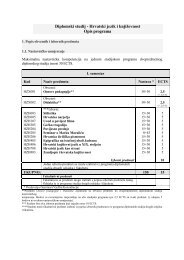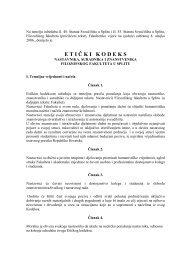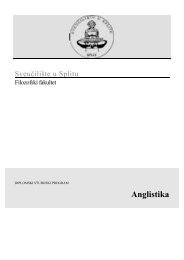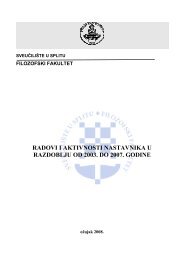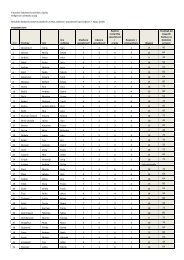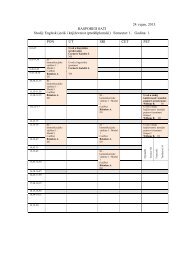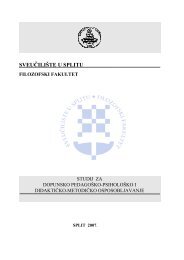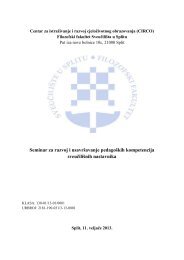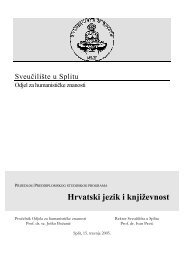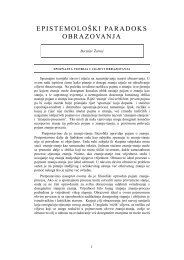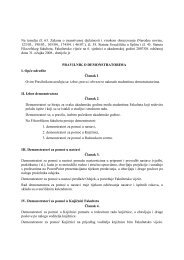English Studies
English Studies
English Studies
Create successful ePaper yourself
Turn your PDF publications into a flip-book with our unique Google optimized e-Paper software.
G R A D U A T E D E G R E E P R O G R A M M E : E N G L I S H S T U D I E S<br />
choices, orientations and systems. The student improves skills in the logical<br />
analysis.<br />
Prerequisites Competences and skills acquired upon the completion of the first year<br />
graduate study programme (teacher education). Prerequisites defined by the<br />
Faculty Statute.<br />
Course contents<br />
Recommended<br />
reading<br />
The course covers the following units: (a) the relations between contemporary<br />
philosophy and educational theory, (b) anthropological basis of education and the<br />
idea of natural development in contemporary philosophy of education, Unit (a)<br />
covers main schools in contemporary philosophy, and reveals how the<br />
understanding of basic notions («man», «language», «and knowledge») shapes<br />
contemporary educational theories. Topic (a) comprises four thematic circles. The<br />
first covers «phenomenological» orientation in philosophy (historicism,<br />
existentialism, hermeneutics) and hermeneutical orientation in educational theory.<br />
The second thematic circle covers «analytical» schools in philosophy (neopositivism,<br />
critical rationalism) and empirical orientation in the educational theory.<br />
The third thematic circle covers critical theory and critical orientation in educational<br />
theory. The fourth thematic block examines roots of post-modern philosophy<br />
(psychoanalysis, structuralism), and discusses the reception of post-modern<br />
philosophy in educational theory. Unit (b) gives short introduction to educational<br />
anthropology covering: anthropological basis of education and educational import<br />
of the notion of natural development.<br />
Student must read (a) one introductory text in philosophy, (b) one text discussing<br />
relations between philosophy and educational theory, (c) one original text<br />
pertaining to philosophy of education and, if the student has no prior education in<br />
informal logic, (d) one introductory text in informal logic.<br />
(a) Introduction to philosophy<br />
Anzenbacher, A. (1992). Filozofija: uvod u filozofiju. Zagreb: Školska knjiga.<br />
Warburton, N. (1999). Filozofija: osnove. Zagreb: Kruzak.<br />
(b) Correlation between philosophy and education science<br />
Gudjons, H. (1994). Pedagogija: temeljna znanja. Zagreb: Educa.<br />
König, E. i Zedler, P. (2001). Teorije znanosti o odgoju. Zagreb:<br />
Educa.<br />
Lenzen, D. (2002). Vodič za studij znanosti o odgoju - što može, što<br />
želi. Zagreb: Educa.<br />
(c) Research in the philosophy of education<br />
Bereiter, C. (2002). Education and Mind in the Knowledge Age.<br />
Mahwah: Lawrence Erlbaum Associates.<br />
Bruner, J. (2000). Kultura obrazovanja. Zagreb: Educa.<br />
Čehok, I. (Ed.). (1997). Filozofija odgoja: izbor tekstova hrvatskih<br />
pisaca. Zagreb: Školska knjiga.<br />
(d) Basics of logic and logic in education<br />
Kovač, S. (2004). Logika. Zagreb: Hrvatska sveučilišna naklada.<br />
74



